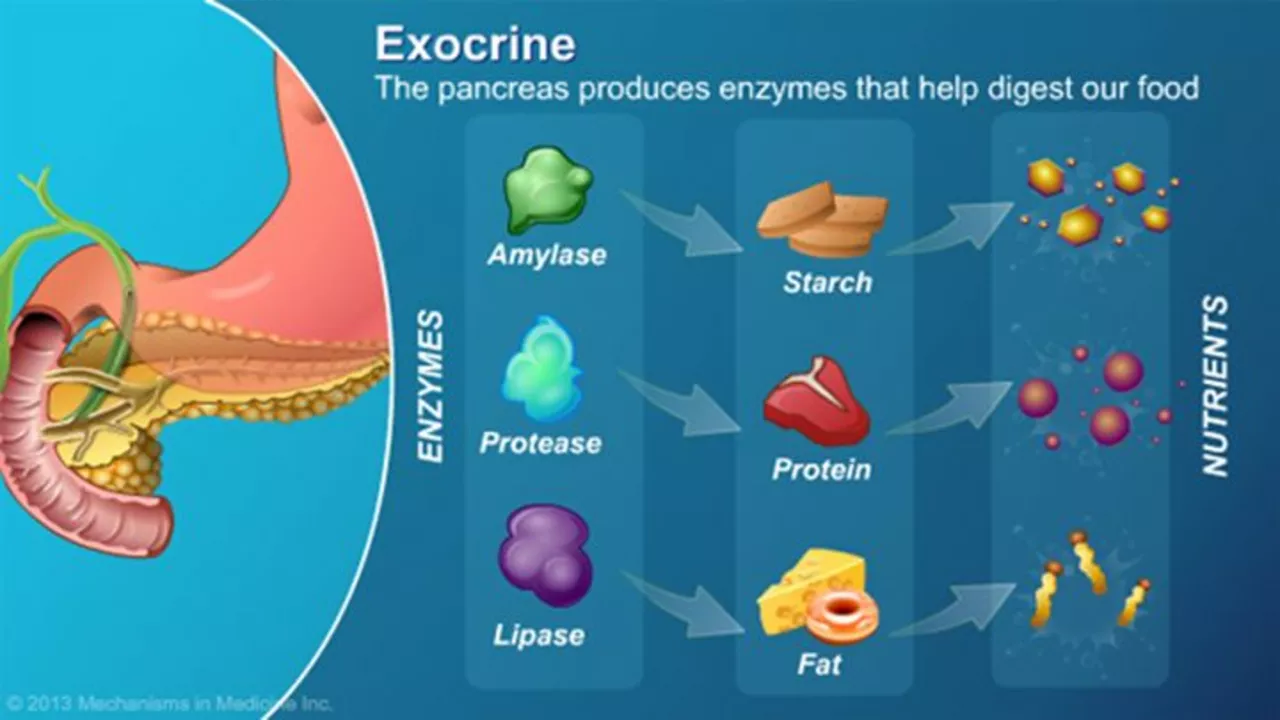Digestive Enzymes: What They Do and When You Might Need Them
Had a meal and felt bloated, gassy, or heavy afterward? Digestive enzymes are the proteins that break food into parts your body can absorb. If those enzymes are low or not working well, food sits in your gut and causes discomfort. This page gives clear, practical steps to spot issues and try safe fixes.
Think of enzymes as kitchen tools: amylase chops carbs, protease cuts proteins, and lipase handles fats. Other helpers include lactase (for milk sugar) and enzymes from pineapple (bromelain) or papaya (papain). Your pancreas and small intestine make most of these, but some people need extra help.
Common signs of low digestive enzymes
Watch for these clear signs: regular bloating or gas after meals, greasy or floating stools, undigested food in stool, and trouble digesting dairy (gas, cramps after milk). If you lose weight without trying or feel weak, that’s a stronger warning to talk to a doctor. Occasional discomfort is normal; ongoing issues are not.
Food sources and simple fixes you can try
Start with food before supplements. Pineapple and papaya contain natural enzymes that help with protein. Fermented foods like yogurt, kefir, and sauerkraut improve digestion and supply live microbes that assist enzymes. Cooked grains and smaller portions can reduce stress on your system. Chew slowly—breaking food down mechanically makes enzymes work better.
If dairy is the problem, try lactose-free milk or a lactase pill before dairy meals. For fat-heavy meals, smaller portions or adding a bit of vinegar can help stomach acid and enzyme action. These small changes often cut symptoms quickly.
When supplements make sense: consider enzyme blends if you regularly feel bloated or have trouble after diverse meals. Look for products that list amylase, protease, and lipase, or single enzymes like lactase if dairy is your only issue. Take enzymes with or right before a meal—timing matters.
Choose wisely: pick brands with third-party testing and avoid mega-doses. Start with the recommended amount and see how you feel. If you get cramps, nausea, or an allergic reaction, stop and check with a healthcare provider.
When to see a doctor: persistent symptoms, unexplained weight loss, blood in stool, or a history of pancreatitis or diabetes. Your provider can order stool enzyme tests, blood work, or imaging to find the cause. Enzymes can help many people, but they’re not a cure-all—treat the cause when needed.
Bottom line: try food-based fixes and simple lifestyle changes first. If those don’t work, a focused enzyme supplement—used correctly—can bring real relief. Talk to your clinician if symptoms stick around or worsen.

Pancrelipase and Bariatric Surgery: What You Need to Know
As a blogger, I recently came across the topic of Pancrelipase and Bariatric surgery and felt the need to share some important information with my readers. Pancrelipase is an essential enzyme supplement that helps in the digestion of fats, proteins, and carbohydrates, particularly in patients who have undergone bariatric surgery. Bariatric surgery is a procedure that helps in weight loss by altering the digestive system, often leading to a decreased ability to absorb nutrients. It's crucial for patients to understand the importance of taking Pancrelipase supplements post-surgery to maintain proper nutrition and avoid potential complications. So, if you or someone you know has undergone bariatric surgery, make sure to discuss Pancrelipase with your healthcare provider to ensure optimal recovery and well-being.
Read More




